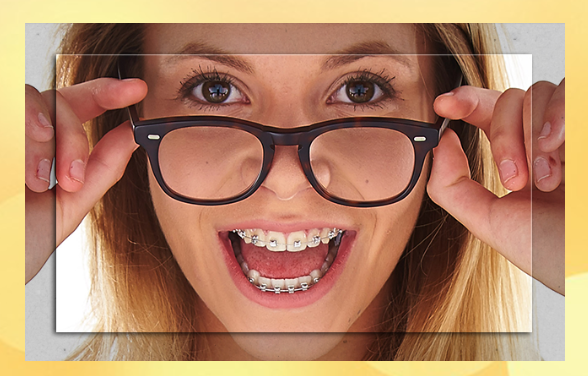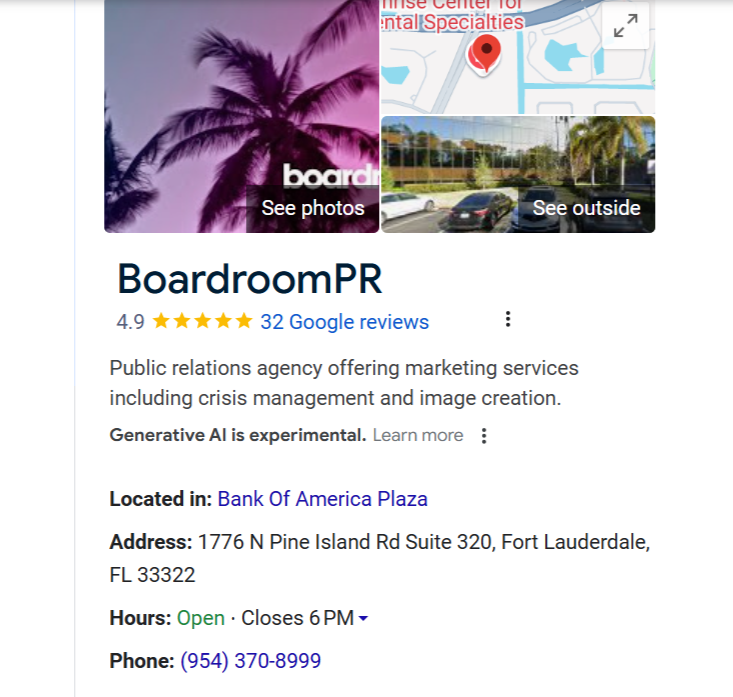Things to Know Before Getting Braces
Davie / Fort Lauderdale Orthodontic Dentist

Braces are a great teeth straightening treatment that allows patients to enjoy straighter, more beautiful teeth. Not only are straight teeth seen as more attractive, but they’re easier to keep clean and therefore less prone to problems like decay and toothaches later in life. Getting braces is definitely something to be excited about, but if you’re like most patients, you also have some questions and concerns as your appointment with the orthodontist approaches. Read through the answers to these common questions, and you’ll have a much better idea of what to expect during your time with braces.
The Cost of Braces
The cost of braces varies widely depending on how severely your teeth are misaligned, the economy in your local area, the type of braces you choose, and whether your dentist also has to perform other related treatments–like an extraction or palate expansion. In general, the more serious your misalignment, the more you’ll pay for braces. This is because more serious causes like overbites and severe crossbites require more checkups and adjustments at your orthodontist’s office and a longer period of treatment overall.
Metal braces are the most affordable braces. Expect to pay between $3,000 and $7,000 for treatment overall. Ceramic braces cost a little bit more, with costs starting at around $4,000. Invisalign, which is an alternative to braces consisting of a series of clear, plastic trays that align the teeth, is comparable in price to ceramic braces. If you opt for lingual braces, which are braces placed on the tongue side of your teeth, you should expect to pay between $8,000 and $10,000.
While the cost of braces may seem burdensome, there are several ways to make braces more affordable. Get in touch with your dental insurance company, and ask what coverage they offer for orthodontic treatments. Most will cover orthodontic treatments, including braces and Invisalign, for children and teens up to a certain age, such as 18. Your insurance company may cover the first $3,000 or $4,000 of treatment, only leaving you responsible for the remainder.
If you do have to pay for the entire cost of braces out-of-pocket, search for a “orthodontist near me” that offers financing options. It’s easier to pay for braces in small installments every month than to pay one lump sum upfront. Keep in mind that part of the cost of braces is the price of regular adjustments in your orthodontist’s office. You can often pay for these appointments one at a time as you go, so the total cost gets split up over your treatment period.
Find a Top Rated Fort Lauderdale Orthodontist
#1. Do braces hurt?
The short answer to this question is “yes.” But before you panic, take note that the discomfort associated with braces is usually quite mild, and you can manage it just as easily as you can manage a scraped knee or a mild headache. The worst pain usually is felt on the days just after your braces are applied, and after you have the wires tightened. This pain may feel like pressure and aching in your jaw. To keep it under control, you can hold ice or frozen veggies against the outside of your jaw and take a dose of an over-the-counter pain reliever, like ibuprofen.
The other primary type of pain associated with braces is acute stinging when the wires and brackets scrape your cheeks and tongue. You can minimize this pain by always keeping a tub of braces wax nearby so you can place a glob of wax on any braces that are rubbing. When your mouth does get irritated, apply some oral numbing gel (the type made for teething babies works well) to the sensitive areas. Rinse your mouth with cool water. Abrasions on the cheeks and gums are less common with Invisalign than with regular braces, and they are most common with lingual braces, which are known to rub against the tongue especially during the first few weeks of treatment.
#2. How long do you have to wear braces?
When you visit your orthodontist to get your braces put on, they will often give you an estimate of how long you’ll need to wear your braces. The more misaligned your teeth are, the longer you’ll have to wear them. Do keep in mind, however, that this time frame is an estimate. As your orthodontist observes how your teeth move in your mouth in reaction to the braces, he or she may adjust the treatment period accordingly.
Most children and teens need to wear traditional braces for about two years, though some milder misalignment’s may be corrected in a year and the most severe of cases can take up to three years. If you are an adult who is getting braces to correct teeth that have moved somewhat out of position since you previously had braces as a teen, expect to wear your braces for six months to a year.
#3. What foods do you have to avoid when wearing braces?
When you first get braces, they are going to feel very strange on your teeth, and you’re going to have a tough time eating most foods because your jaw will be a bit achy and uncomfortable. During these first few days, you are best off sticking to soft foods like pasta, peanut butter and jelly sandwiches, and yogurt. Slowly, as the discomfort subsides and you get used to the feeling of chewing with braces, you can begin adding other foods back into your diet. There are really only a few foods you must avoid when wearing traditional metal or ceramic braces:
Very crunchy foods like nuts, hard candy, crunchier chips, and hard candy
Overly chewy foods like beef jerky and gummy candy
Sticky foods like toffee, gum, licorice, and caramels
Foods you must bite into, like apples and corn on the cob
If you opt for Invisalign over regular braces, you do not have to worry about dietary restrictions. Since you remove your trays before you eat, you can eat any foods you desire and then place the trays back on your teeth after your meal. You do have to be careful what you drink when you are wearing the aligner trays. It’s okay to drink water with the aligners in place, but you need to remove them if you drink any sugary liquids or dark-colored beverages like coffee or tea, as they can stain the clear aligner trays.
#4 How do you take care of your teeth when wearing braces?
Caring for your teeth when wearing braces starts with avoiding crunchy foods that may cause the braces wires to snap. You should also avoid overly sugary foods, as these can cause plaque and bacteria to build up around your braces, eventually leading to tooth decay and cavities.
Brushing your teeth takes a bit longer when you have braces, but it is so important that you do it thoroughly. Use a toothbrush with a small head, and spend some time individually brushing around each brace. Also make sure you floss after each meal, as this will remove food particles that get caught in your teeth and braces. Finish each brushing and flossing session with an antiseptic mouthwash to kill lingering germs. Most braces wearers get into the habit of taking their toothbrush, toothpaste, and floss with them so they can brush after snacks and meals they eat at work or while out on the town.
Another important way to protect your braces is to wear a mouthguard when playing sports. Look for a “dentist near me” that can make you a customized mouth guard that fits precisely over your teeth. This way, if you are ever hit in the face with a ball or someone’s elbow, your braces won’t harm your cheek tissue and the brackets won’t be as likely to come loose. If you do ever have a bracket or wire come loose, make an appointment with your orthodontist immediately to have it fixed. In the meantime, you can place some wax over the sharp points on the braces to protect the inside of your mouth.
If you opt for Invisalign rather than traditional braces, it’s a little easier to take care of your teeth during the treatment period. Remove your aligners before brushing, and then brush and floss your teeth as you normally would. Clean your aligners with the cleaning kit your dentist provided, and then pop them back into place.
Contact South Fl Orthodontist Dr. Rosie Angelakis
Davie
Address: 4725 SW148th Ave. Suite 203
Davie, FL 33330
Phone: 954-680-6160
Fax: 954-434-5080
Hours: 8am-5pm Monday through Friday
Appointments available on Saturday

 Florida PR News...5 years ago
Florida PR News...5 years ago






